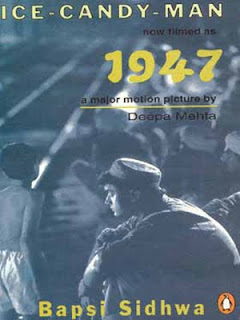Bapsi Sidhwa captures the turmoil of the Partition of India through the eyes of little Lenny Sethi belonging to a wealthy Parsi family in Lahore. We first meet her when she is four years old, and grow with her, in the discovery of a world changing rapidly around her.
Lenny is a precocious child, indulged by everyone because of her polio. She is enamoured by the many suitors who woo Shanta, her ayah or nanny who accompanies her to the park – from the Masseur to the Butcher, the ZooKeeper to the cook and the gardener, but particularly with the poetry-spouting Ice Candy Man. The group meets under the guise of exchanging news, while actually each one is attracted to the lovely Shanta. The Ice Candy Man flirts incessantly with Shanta, but she herself, is drawn to the Masseur.
When Lahore is declared part of Pakistan, there is a spate of migrations, conversions and much violence in the name of religion. The Ice Candy Man, sees a train full of Muslim passengers hacked to death by Sikhs, and in that instant, turns from poet to instigator. In one terrible night, Lenny witnesses the carnage that was Partition from the Ice Candy Man’s rooftop even as he revels in the mindless violence. One day, the masseur’s hacked body is found, stuffed in a gunny sack.
When marauders descend on the Sethi household looking for Hindus in hiding, Lenny is deceived by the Ice Candy Man into uttering the truth, thereby forever changing the destiny of the Ayah. Through it all, it is Lenny’s godmother, Roda, who becomes her bulwark. When the missing Ayah is found to be in the red light area of Lahore, it is the Godmother who rights the wrong caused by Lenny’s truth.
Bapsi Sidhwa wonderfully captures Lenny’s voice, with its raw frankness, stirring sensitivity and mourning of lost innocence.
(An edited version appeared in Culturama’s August 2010 Issue)


